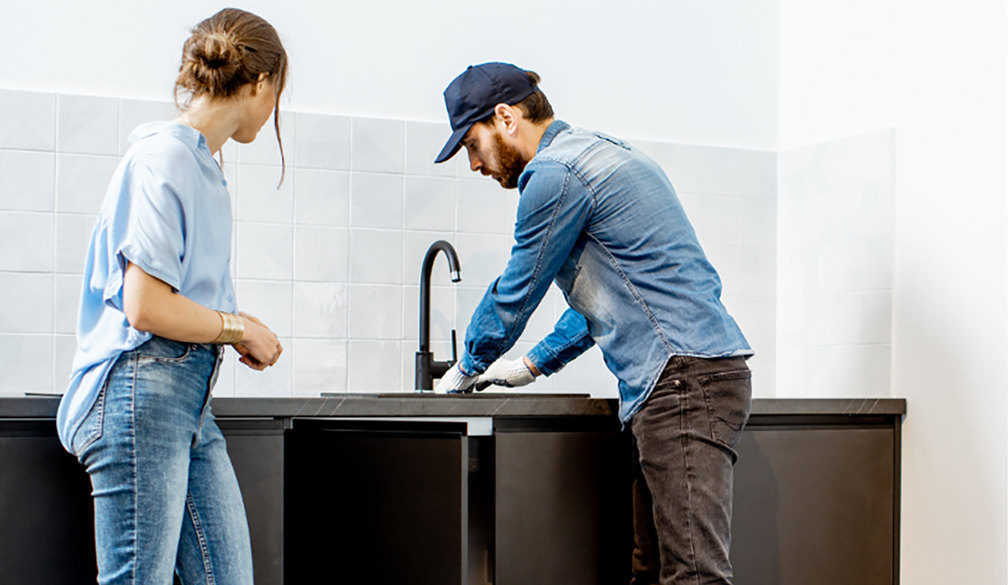Dealing with a Slab Leak: Causes, Detection, and Effective Solutions

A slab leak is a homeowner's nightmare, capable of causing significant damage to both property and finances if left unchecked. A slab leak occurs when a water pipe embedded within or beneath the concrete foundation of a building develops a leak. As water seeps into the soil, it can compromise the structural integrity of the foundation, lead to mold growth, and drive-up water bills.
By being proactive and informed from plumbers Mosman, you can safeguard your property from the potentially devastating effects of slab leaks and maintain a secure and comfortable living environment for years to come.Whether you choose to catch up on tasks, connect with loved ones, or learn new skills, the key is to stay proactive and use this time to your advantage. Let’s explore the causes of slab leaks, ways to detect them, and effective solutions to address this pressing issue.
Causes of Slab Leaks
Several factors contribute to the development of slab leaks:
- Poor Installation: As per the expert plumbers Mosman, if water pipes were not properly installed or insulated during the construction of the building, they can rub against the concrete, leading to wear and tear over time. This friction can eventually cause leaks.
- Corrosion: Pipes made of copper or galvanized steel are vulnerable to corrosion over time, especially in areas with hard water. Corrosion weakens the pipes and makes them susceptible to leaks.
- Shifting Soil: Changes in soil conditions due to factors like earthquakes, settling, or changes in the water table can put stress on pipes, causing them to crack or break.
- Water Pressure Issues: Excessive water pressure can cause stress on pipes, leading to leaks. Water pressure spikes can result from a malfunctioning pressure regulator or other plumbing problems.
- Chemical Reactions: Chemicals in the soil or water, such as minerals or gases, can react with the pipes and weaken them, eventually causing leaks.
Detecting Slab Leaks
Detecting a slab leak early is crucial to prevent extensive damage. Here are some signs to watch out for:
Unexplained Water Accumulation: If you notice water pooling on your floors, especially in areas without obvious sources like a sink or shower, it could indicate a slab leak.
Hot Spots: If you walk on your floor and feel hot spots, it might mean a hot water line beneath the slab is leaking. This can be particularly noticeable with tile or hardwood floors.
Higher Water Bills: A sudden increase in your water bill without any changes in usage patterns could indicate a hidden water leak, possibly a slab leak.
Sound of Running Water: If you can hear the sound of water running even when all taps and appliances are turned off, there might be a leak beneath the slab.
Cracks in Walls or Flooring: As the foundation shifts due to water intrusion, it can lead to cracks in the walls, floors, or even the ceiling.
Mold or Mildew Growth: Excess moisture from a slab leak can lead to the growth of mold and mildew in your home.
Effective Solutions for Slab Leaks
If you suspect a slab leak, it's crucial to take action promptly. Here are some effective solutions:
Professional Leak Detection: Hiring a professional plumbing service with specialized equipment, such as leak detection cameras and acoustic equipment, can pinpoint the exact location of the leak without causing unnecessary damage to your property.
Repiping: In severe cases, repiping might be necessary. This involves replacing the damaged pipes with new ones. Modern alternatives like flexible PEX pipes are less prone to corrosion and can be easier to install.
Epoxy Pipe Coating: In some situations, an epoxy coating can be applied to the interior of the existing pipes. This creates a protective barrier that prevents leaks and corrosion, extending the lifespan of the pipes.
Tunneling: If the leak is extensive and challenging to access, tunneling beneath the slab might be necessary to repair the pipes. While this can be a more intrusive solution, it's often the only option for hard-to-reach areas.
Foundation Repair: If the slab leak has caused significant damage to the foundation, you might need to address both the leak and the foundation issue simultaneously. This could involve foundation leveling, which helps prevent further damage.
Regular Maintenance: To prevent future slab leaks, it's essential to conduct regular plumbing maintenance, monitor water pressure, and address any signs of deterioration promptly.
Quick Repairs: Address any plumbing issues promptly. A small leak left unchecked can escalate into a larger, more destructive problem. Regularly check under sinks, behind appliances, and around water heaters for any signs of leakage.
Conclusion
A slab leak is not a problem to be taken lightly. Early detection and swift action are key to minimizing damage and repair costs. By understanding the causes, recognizing the signs, and exploring the various solutions available, homeowners can effectively deal with slab leaks and protect their property from potential devastation. If you suspect a slab leak, it's always recommended to seek professional help to ensure the issue is addressed correctly and comprehensively.













